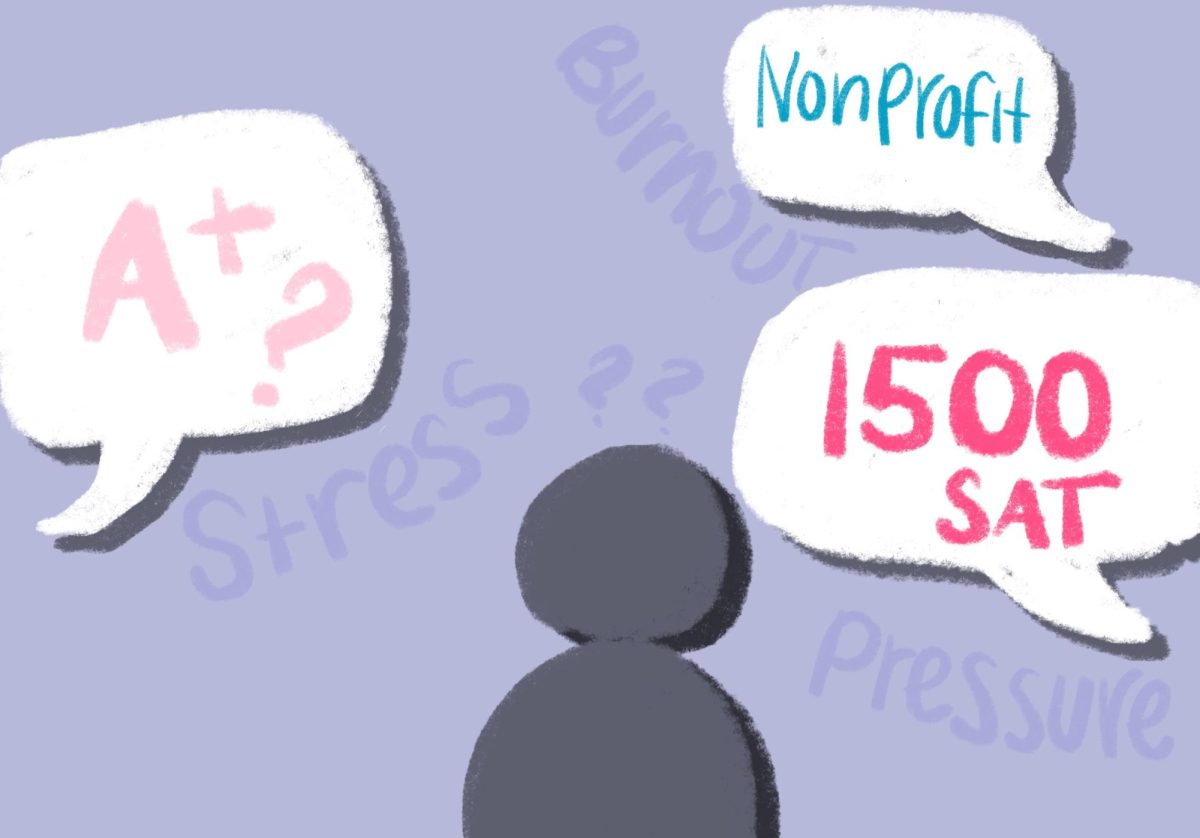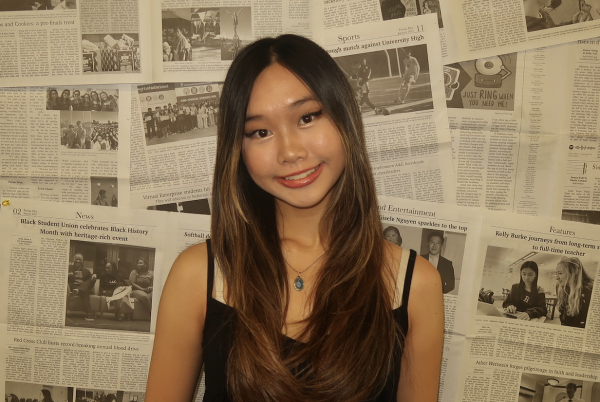“What’s your SAT? What did you get on the last test? What colleges are you applying to?” These are some of the many academically oriented questions that Portola High students hear daily.
Comparing academics, such as test scores and extracurriculars, with others’ mental health. This is especially true when many students are already overworking themselves due to the competitive nature of college admissions. Therefore, students should refrain from asking others overly prying questions about their academics, as these comparisons can create unnecessary anxiety.
Currently, students at Portola High discuss academic topics regularly in classroom environments and during break time. Junior Claire Ko said that she also felt that academics have become a normal conversation topic and highlighted the consequences.
“When people ask me about my test scores and extracurriculars, it makes me wonder if they’re genuinely curious, or if it’s because they’re trying to find someone to compare themselves to,” Ko said. “It’s definitely not a good feeling to not score well on an exam and have someone come up to you and ask how you did.”
Students who frequently compare themselves to others academically may also feel guilty for not constantly pursuing academic goals, causing them to miss the present moment and fixate on their futures, according to PBS. Instead of talking about academics, students at Portola High should discuss interests that stray from this topic and refrain from being nosy about scores and grades, which would promote more positive interactions and emotions.
Nevertheless, many still hold the point that academically rigorous learning environments and being surrounded by peers of a high academic caliber can promote motivation and creativity in students, according to Baylor University. But this does not mean students should be subjected to unwanted conversations that can induce stress and burnout. Test scores and academic performance are also not as indicative of a student’s abilities as they are emphasized in high school, according to Harvard Graduate School of Education. What is more telling is growth and an interest to learn, which is often taken away by the stress of comparison.
“If you feel anxious and pressured whenever you share these things with other people, I’d recommend that you keep things private,” Ko said. “It’s important that you’re thoughtful about who you share things with and how much you share. But in the end, it’s all about being able to focus on your own growth and journey, and you should just do what feels right to you.”
Therefore, students should refrain from these prying topics of conversation to prevent instilling unnecessary stress in other students and to remove the unnecessarily high importance of high school academics.




